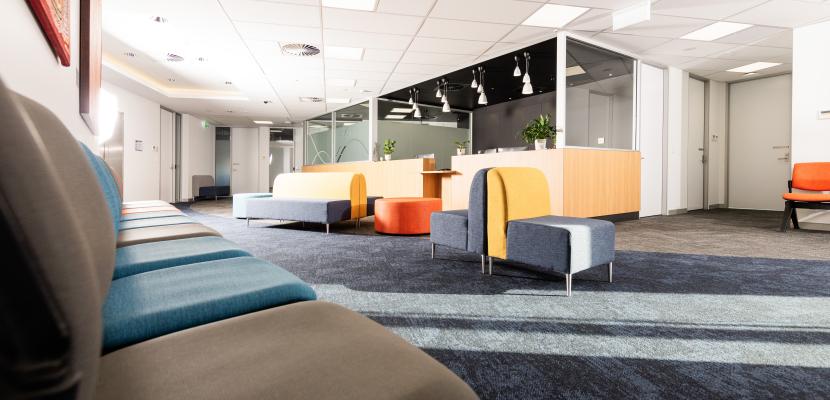
When the extension to Bond University’s Institute of Health & Sport was opened last September, its aim was to help prepare students for the anticipated boom in Australia’s care sector.
Seven months on, it’s living up to its goal.
The move to incorporate the Bond University Psychology Clinic into a broader network of allied health services offered at BIHS North has led to a near doubling intake of Clinical Psychology students, thanks to the expanded facilities.
Psychology Clinic Director Will Drotsky explains that “Bond University has stepped up to government requests for universities to increase their intake of psychology students to meet the higher demand for qualified psychologists in the community.”
“Since the COVID-19 pandemic, we have seen a significant rise in demand for psychological services, with long waitlists at most psychology practices countrywide, so we are delighted the expansion of BIHS North has enabled us to do our bit.”
Operating like a private practice, the clinic is open to the general public for psychological assessments and treatment.
“Clients and patients using the clinic receive high quality services and treatment from post-graduate students who work under the close supervision of experienced and highly-qualified clinicians in their respective fields,” Mr Drotsky said.
“Although the clinic is also a training facility, the services offered is based on the best practice model, using the latest techniques and research.”
However the fees are not typical of a private psychology practice.
“The first initial consultation is free, while the fee for subsequent therapy sessions is $30 per session,” Mr Drotsky said
“In comparison, the Australian Psychological Society recommended fee for a registered psychologist is $300 per session, while private registered psychologist can ask anything between $150 to $220 per session.”
For Master of Psychology (Clinical) student Leah Blakemore, her placement within the Bond University Clinic has been instrumental in her learning and solidified her passion for psychology.
Originally a teacher in rural Queensland, Ms Blakemore witnessed the mental health impacts of the drought and found herself assuming the role of an unofficial guidance counsellor for her students.
“I did a bridging program to move into psychology and I sort of fell in love with psychology as a discipline and I really like helping people,” she said.
“I think more and more people are beginning to understand that physical health and mental health are so interconnected and interrelated.
“If you look after one, you have to look after the other. They’re equally important.”
Recent data from the Australian Bureau of Statistics revealed nearly 40 percent of young Australians aged 16 to 24 had experienced a mental health disorder in the previous year, up from 26 per cent in 2007.
A survey by the Australian Psychological Society in late 2022 reported that one in three psychologists were so busy they had to close their books, compared to one in 100 before the pandemic.
Ms Blakemore appreciates that her work placement at the clinic helps alleviate some of this pressure and supports the broader Gold Coast community.
“I think it's great that we have more psychologists coming through because there's such a need in the industry,” she said.
“Wait lists even on the Gold Coast are 12 months. It’s such a long time to wait and it shows a real gap in our profession.
“At the moment, I think cost of living is definitely popping up in a lot of therapy sessions as a major stressor that people are experiencing which can be really challenging because if you look at Maslow's Hierarchy of Needs, it's really hard to help someone’s mental health if they don’t have access to a safe home and food.
“So it’s becoming more and more challenging as a psychologist and becoming more important to work with other disciplines to be able to address people’s needs on a broader scale.”
Visit here for more information: https://bond.edu.au/our-university/campus/community-services/bond-university-health-and-wellness-clinic